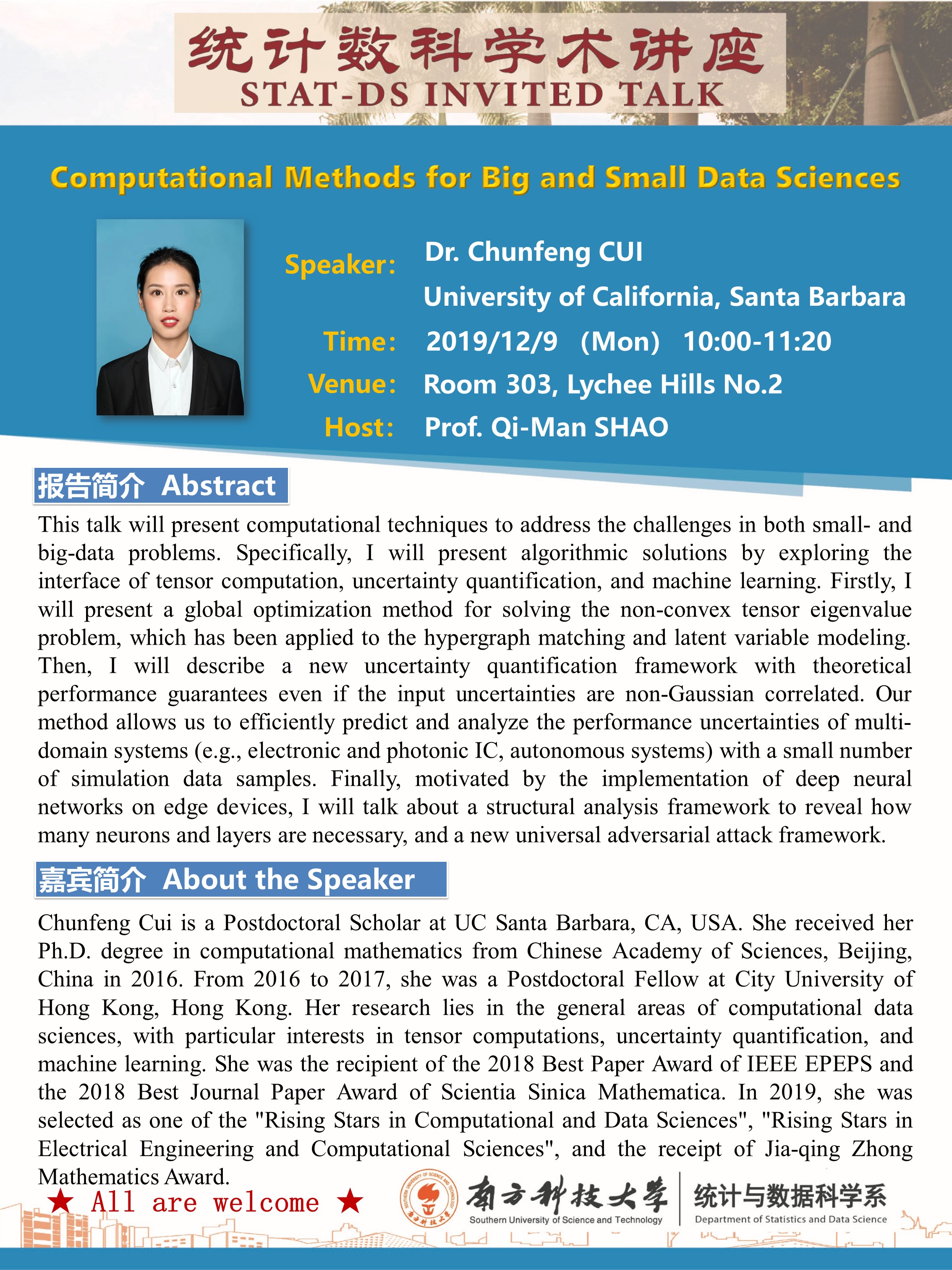Abstract
This talk will present computational techniques to address the challenges in both small- and big-data problems. Specifically, I will present algorithmic solutions by exploring the interface of tensor computation, uncertainty quantification, and machine learning. Firstly, I will present a global optimization method for solving the non-convex tensor eigenvalue problem, which has been applied to the hypergraph matching and latent variable modeling. Then, I will describe a new uncertainty quantification framework with theoretical performance guarantees even if the input uncertainties are non-Gaussian correlated. Our method allows us to efficiently predict and analyze the performance uncertainties of multi-domain systems (e.g., electronic and photonic IC, autonomous systems) with a small number of simulation data samples. Finally, motivated by the implementation of deep neural networks on edge devices, I will talk about a structural analysis framework to reveal how many neurons and layers are necessary, and a new universal adversarial attack framework.
About the Speaker
Chunfeng Cui is a Postdoctoral Scholar at UC Santa Barbara, CA, USA. She received her Ph.D. degree in computational mathematics from Chinese Academy of Sciences, Beijing, China in 2016. From 2016 to 2017, she was a Postdoctoral Fellow at City University of Hong Kong, Hong Kong. Her research lies in the general areas of computational data sciences, with particular interests in tensor computations, uncertainty quantification, and machine learning. She was the recipient of the 2018 Best Paper Award of IEEE EPEPS and the 2018 Best Journal Paper Award of Scientia Sinica Mathematica. In 2019, she was selected as one of the "Rising Stars in Computational and Data Sciences", "Rising Stars in Electrical Engineering and Computational Sciences", and the receipt of Jia-qing Zhong Mathematics Award.
Poster




